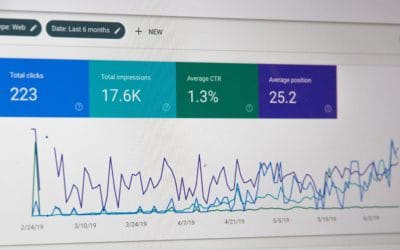I don’t know if there is any single aspect of digital marketing that is shrouded in more mythos and misinformation than SEO, which by the way, means “search engine optimization.” Many don’t know what it is, how it works, or even what those letters stand for, but everybody does know they want to “get found on Google.”
If I had a dime for every ridiculous thing I’ve heard about SEO I’d probably have a nice vacation home in Italy by now. I’m not exactly who I should blame–the marketers who have been trying to game the Google since day one, or the IT people who have created insidious ways to implement these crazy schemes. The one thing I know for sure, is that it didn’t take long for people to realize the importance of being on the first page in Google search results, and ever since SEO has been critical to marketing.
Some guiding principals to consider
Google and other search engines are in the business of helping people find things, but not just ANY thing, they need to help people find the RIGHT things. Despite all the conspiracy theory mumbo jumbo out there, the best way for Google to make money is to help their customers. While their advertisers are also customers, even the advertisers won’t benefit from anything other than helping people find what they are looking for, and quickly.
Over time the algorithms have become more and more complex for two reasons. The first is to offset all the ways that marketers have tried to game the system. The second goes hand in hand with the first–making the results more accurate and helpful. As a result Google has started penalizing sites that are employing techniques known to be “black hat,” or devious/deceptive. If you try to take shortcuts you will only have short-term gains, and you will always lose in the long run.
The SEO “rules” continue to evolve and change over time. A good rule of thumb to consider is that whatever you think you know can, and will change.
What SEO is not:
- Magic, voodoo, or something unknowable and mystical
- Keyword stuffing
- Spam
- Anything you were doing 10 years ago
- Paid links or link exchanges
- Domain squatting
- Hidden scripts or content
- Shortcuts of any kind
What SEO is: The SEO seven
- Website optimization
- Ongoing quality content
- Authority
- Influence
- Speed
- Security
- Relevance
The short answer is that if you build a website that is quick, easy, useful, safe, and respected, then you’ll do well. While some technology is required to make that happen, no doubt your boss will notice that all of those things are good business offline as well.
If your website is built with your customers and their unique needs and challenges in mind you’re well on your way. The problem is that most business websites are like the loud blowhard at your neighborhood barbecue–all they do is talk about themselves. Or maybe your company hasn’t invested in quality hosting, so the pages load slowly. Have you ever spent too much time on a website trying to find basic information like a phone number or address? These things matter, and have very real impact on your SEO.
So what to tell the boss?
SEO is the simplest and most complex of things all rolled into one. The foundation of SEO is truly focusing on your customer and their needs. Your website has to be helpful to them above all. The way you do that is by creating great content and having the right technology to make that happen. Some of that work is pretty easy, some of it requires the help of a professional.
I recommend working with an agency that can understand your customer and is up to date on the latest technology to ensure that you have an SEO strategy that works. I know it’s a bit of a shameless plug, but we can help with that.



